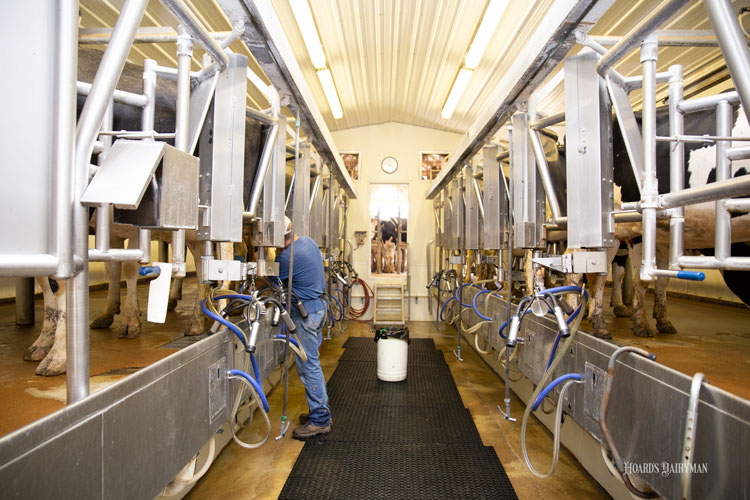
Although there is always room for improvement, the United States dairy industry has been a leader in milk quality. Somatic cell counts are an obvious area of focus, and from 2005 to 2012, the nation’s average somatic cell counts dropped nearly 100,000 cells per milliliter.
However, researchers continue to push milk quality knowledge, and a recent Journal of Dairy Science article from Cornell University explored the farm level impacts of bacteria in milk. The focus of this study was spore-forming bacteria that are tied to spoilage of dairy products.
Typically, these bacteria include psychrotolerant, mesophilic, thermophilic, and anaerobic butyric acid bacteria. They enter the dairy product pipeline at the farm, survive processing, and can wind up in the finished product. Although these are not dangerous to human health, they do eventually act to spoil product.
For that reason, the research team traced the bacteria all the way back to the farm to determine what farm and cow level factors most impact bacteria levels in raw milk. Of the 34 sets of samples taken on 17 New York farms, bulk tank bacteria spore levels averaged below 1 log colony forming units per milliliter across all spore types.
More than one spore type was associated with the residual level of spores in milk that existed even after cows were thoroughly cleaned. Of additional importance was udder hygiene, clipping or flaming of udders, spore levels in feed commodities, spore level in the parlor air, changing or topping off of cattle bedding, and type of bedding used.
Sand bedding had the lowest correlation to spore level, while sawdust had moderate correlation and manure solids bedding was most likely to impact bulk tank bacteria levels.
“Based on these results, dairy farmers who want to reduce spores in bulk tank raw milk should ensure that bedding and housing area cleanliness are well-managed,” the group wrote. “Further, there should be a comprehensive approach to udder hygiene as well as teat condition and cleanliness.”

The author is an associate editor. She covers feeding and nutrition, youth activities, and heads up the World Dairy Expo Supplement. Maggie was raised on a 150-cow dairy near Valley Center, Kansas, and graduated from Kansas State University with degrees in agricultural communications and animal sciences.
Join us for a special upcoming webinar:

Special silage hybrids webinar: Hoard’s Dairyman invites you to a special webinar – “Guidelines for Selecting a Silage Hybrid” presented by Pioneer on Monday, October 28 at noon (Central). With a focus toward dairy nutritionists, Bill Mahanna will provide an overview of the agronomic and nutritional factors to consider when selecting a silage hybrid. Register at this link.